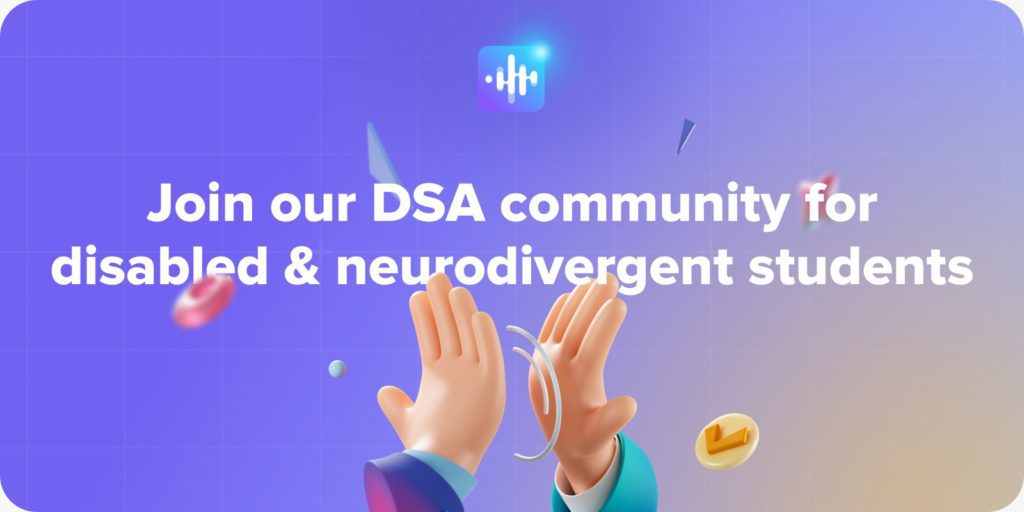Attention deficit hyperactivity disorder (ADHD) is a condition which causes changes in behaviour amongst both adults and children. There are a number of potential causes linked to the origin of a diagnosis, however it can occur in people of any ability. ADHD is classed as a disability in the UK and today we will look at the reasons behind this, as well as how students with an ADHD diagnosis can benefit from help and support available to them whilst at university in the UK.

What are the symptoms of ADHD?
In order for a condition to be classed as a disability in the UK, it must be associated with substantial effects and impairments that negatively impact a person’s ability to function in day-today life. If these circumstances are met, the condition will be classed as a disability under the Equality Act 2010. So, what are the symptoms of ADHD which have a substantial and long-term negative effect on a person’s ability to do normal daily activities?
- Inattentiveness
- Hyperactivity
- Impulsiveness
These are the main three symptoms which are typically associated with ADHD, however there are further symptoms such as:
- Lacking sense of danger
- Poor organisational skills
- Forgetfulness
- Restlessness
- Mood swings
- Intense experiencing of emotions
- Poor emotional management
- Difficulty managing stress
- Communication barriers
- High levels of frustration
- Insomnia
- Anxiety
- Poor self-esteem
- Difficulty managing relationships
This is an extensive list of symptoms and all of the above do not need to be recognised in order to receive an ADHD diagnosis. Additionally, it is worth noting that many of these symptoms are experienced by people in society daily who are not diagnosed with ADHD. These symptoms are typically experienced at a much stronger intensity and difficulty for a person with ADHD as opposed to the average person having a habit of forgetting their keys now and again.

What are the different types of ADHD?
-
Primarily Hyperactive and Impulsive ADHD
This is a type of ADHD which is heavily linked to the symptoms such as hyperactivity and impulsivity. Whilst people with this ADHD diagnosis will not show signs of inattentiveness, they will typically experience symptoms such as restlessness, excessive talking and lack a sense of danger.
-
Primarily Inattentive Type ADHD
In contrast, this type of ADHD is predominantly linked to the lack of attention symptom which is linked with being easily distracted. A person with an Inattentive Type ADHD diagnosis will not show signs of hyperactivity and lean more towards experiencing symptoms which put their mind “elsewhere” such as forgetfulness and poor memory recall.
-
Combined Type ADHD
A person with a combined type ADHD diagnosis will experience a mix of both Hyperactive and impulsive type and inattentive type symptoms which can lead to an intense and challenging experience.
ADD vs ADHD explained
ADD (Attention-Deficit Disorder) was a term formerly used to describe people with innatentive type ADHD, who does not experience aspects of hyperactivity. The term is no longer used in diagnosis as it is now considered a subtype of ADHD.

How is ADHD diagnosed?
ADHD can be diagnosed during either childhood, adolescence or adulthood and the diagnosis is issued following assessments from specialists and psychiatrists and meeting of required criteria, amongst other factors. If you think there is a possibility you may have ADHD it is recommended to book an appointment with your GP to discuss your concerns and plan next steps.
How does ADHD impact a student’s learning ability at university?

A student with an ADHD diagnosis will face a number of setbacks and difficulties during their time learning at university. Experiencing a combination of these symptoms together can put a student with ADHD at a disadvantage to non-disabled and neurotypical students. Struggling with a poor attention span during lectures, in combination with further symptoms such as restlessness and poor stress management can cause for a much more mentally draining and intensive learning experience and can make note-taking a serious challenge as a result. This is where support for students with disabilities such as ADHD can be vital; a Jamworks Pro subscription can provide learners with the ability to capture their lecture content in real-time, even when their mind is elsewhere! Jamworks gives students with ADHD the option to review their lecture content at a time where their focus is intact, at a pace that is manageable for them and in a format that is adaptable to their individual needs.
What additional educational support do students with ADHD qualify for?
As ADHD is classed as a disability in the UK, students with the diagnosis are entitled to a number of educational support systems. Disabled Students’ Allowance (DSA) is a non-repayable grant available to students with disabilities, health problems and learning difficulties which is provided with the aim to aid students in the areas of which their studies are affected. ADHD is a disability which meets these criteria and therefore DSA is available for students with ADHD to aid their learning. Another form of support which is available to those with an ADHD diagnosis is the Access to Work grant. This is a UK government programme which can offer up to £62,900 a year to those with a disability to take up or stay at work. Students who need to work alongside their degree to support themselves financially can apply for the grant and be offered forms of support that help them to complete their role in their chosen employment. These forms of support can include adapting equipment such as noise-cancelling headphones, ADHD coaching, transport support and more.
How can DSA help students with ADHD?
Students with ADHD must apply for DSA either through their student finance application online, or via a DSA1 form in order to receive educational support. Once their application has been processed they will be invited to attend a needs assessment to determine what forms of assistance will prove most efficient for their individual needs in relation to their ADHD and how it impacts their ability to learn. Forms of DSA which could be offered to students with ADHD to aid their learning includes specific computer equipment to help with note taking and revision, as well as specialised software and programme subscriptions such as a Jamworks Pro account for targeted support. Some students with ADHD will benefit from having a specialist note-taker to assist their symptom of inattentiveness, or one-to-one study skills training and sessions to adapt their current learning process to meet their individual needs. Students with Hyperactive and Impulsive ADHD may benefit from forms of DSA support such as laptops, printers and dictaphones to assist them in taking notes and organising their schedules. The forms of DSA which a student with DSA is offered vary from one student to the next, however the maximum amount of DSA offered for ADHD in England, Wales, Scotland and Northern Ireland is the following:
- England: £25,575
- Wales: £32,546
- Northern Ireland: £25,000
- Scotland: £25,680
The Benefits of ADHD as a student
 It can be easy for students with a learning disability to focus on the negative impacts of their diagnosis, however it is important to remember that every cloud has a silver lining and there are some benefits of ADHD which enables students to thrive in their learning environment. Many people with ADHD can display high levels of intelligence and creativity and this can benefit those studying in areas that require these forms of skills and knowledge. Additionally, students with ADHD can be great problem solvers and multi-taskers which can help when being overloaded with assignments and revision.
It can be easy for students with a learning disability to focus on the negative impacts of their diagnosis, however it is important to remember that every cloud has a silver lining and there are some benefits of ADHD which enables students to thrive in their learning environment. Many people with ADHD can display high levels of intelligence and creativity and this can benefit those studying in areas that require these forms of skills and knowledge. Additionally, students with ADHD can be great problem solvers and multi-taskers which can help when being overloaded with assignments and revision.
In conclusion, ADHD is a disability in the UK and is a complex diagnosis which can be experienced differently from one person to the next. Students with ADHD may struggle in their learning environment as a result of their disability; however, they can apply for DSA to receive forms of educational support to give them the chance to succeed academically at the same rate as non-disabled and neurotypical students.
